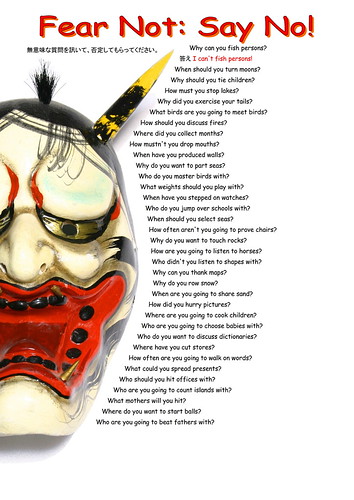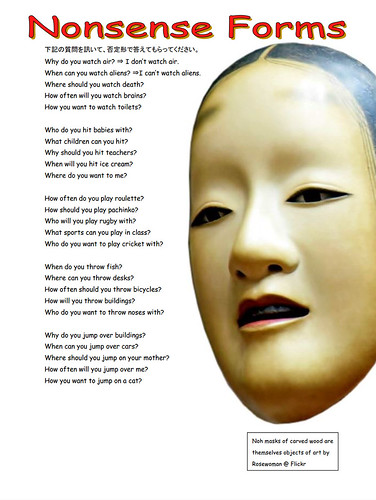Thursday, November 19, 2015
Japanese Politeness and Nonsense Forms

One of the main reasons why Japanese can't speak English is because they are too kind and polite to ask difficult or unanswerable questions of their conversation partners. It is not so much they fear grammatical mistakes (which my students keep making) but putting their partner on the spot by asking them something that their partner can not, because it is impossible, to answer. This forces them to check out the question that they are about to ask in Japanese first, and verify that it can be answered. This in turn puts them back into the reverse, Japanese mode of thought (precisely the reverse of English) slows their English production to a snail's pace, and prevents them from increasing their fluency. In order to encourage them to fire questions, from the hip, like a river of sludge, and throw themselves away as all the best martial arts encourage one to do I have also to persuade them that their partner will be just fine.
To that end, I am having success with these nonsense questions to which students are instructed to answer in the negative.

I introduce these exercises as being as the equivalent of practising parrying or blocking in Karate. If someone asks you a question that does not make any sense, just answer in the negative. Once students know that they can do this, and their partner can do this, and "block" senseless questions, then they feel more able to ask questions freely and fluently, senseless or not, without censoring themselves, and checking out all their English production in Japanese first.
Image: Noh Masks by Rosewoman.
This blog represents the opinions of the author, Timothy Takemoto, and not the opinions of his employer.
